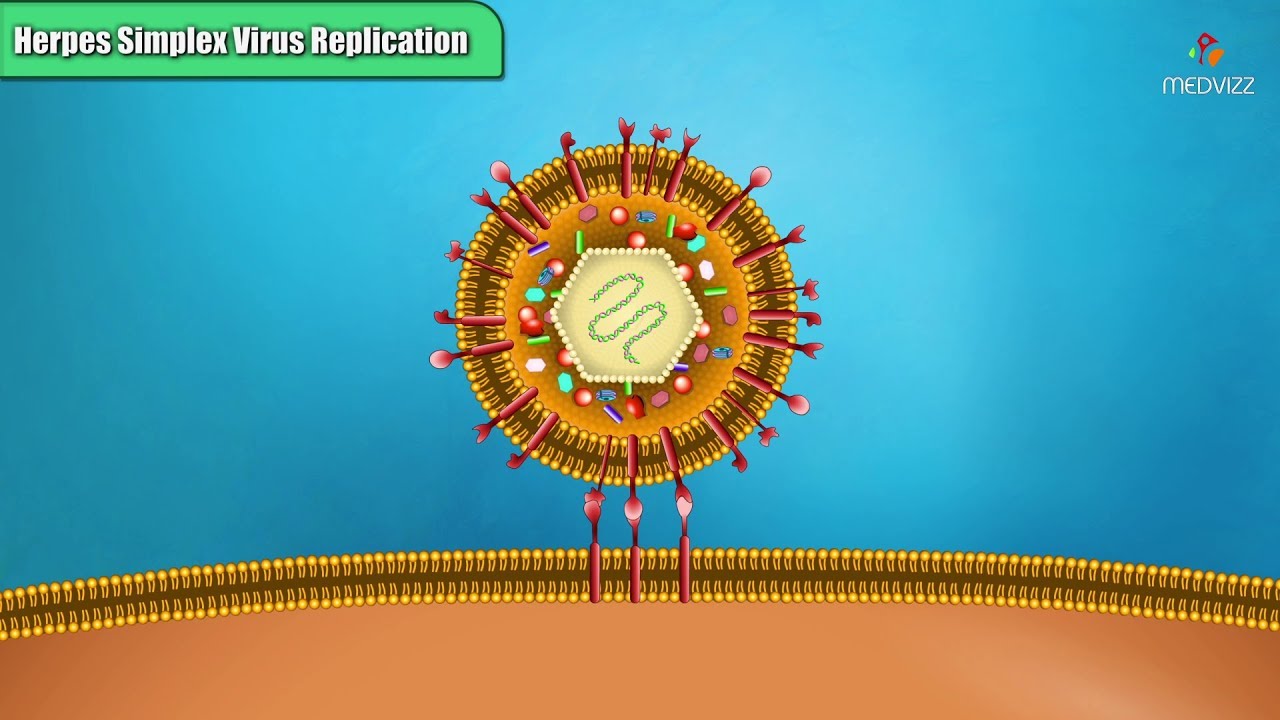Herpes Simplex, Causes, Signs and Symptoms, Diagnosis and Treatment.
Summary
TLDRHerpes simplex, caused by the herpes simplex virus (HSV), manifests as oral or genital herpes. HSV-1 causes oral herpes, often through kissing or sharing utensils, while HSV-2 typically spreads via sexual contact. Symptoms include blisters, itching, and flu-like signs such as fever and swollen lymph nodes. Diagnosis involves physical exams and tests, such as herpes cultures or blood tests. While there is no cure, treatments like acyclovir help manage symptoms and reduce outbreaks. Risk factors include unprotected sex, multiple partners, and a weakened immune system. Regular prevention and medication are key to managing the virus.
Takeaways
- 😀 HSV-1 causes oral herpes, leading to fever, blisters, and cold sores on the mouth and face.
- 😀 HSV-2 is responsible for genital herpes, typically contracted through sexual contact.
- 😀 Herpes simplex is highly contagious and spreads through direct contact, such as kissing or sharing utensils (for HSV-1) and sexual contact (for HSV-2).
- 😀 HSV-1 can be contracted by children from infected parents, even without symptoms appearing in the parent.
- 😀 The most prominent risk factors for HSV-2 include unprotected sex, being female, having multiple sexual partners, and a weakened immune system.
- 😀 Common symptoms of herpes include blisters, itching, pain while urinating (genital herpes), and flu-like symptoms such as fever, headaches, and swollen lymph nodes.
- 😀 HSV can spread to the eyes, causing herpes keratitis, which leads to eye pain, discharge, and a gritty feeling.
- 😀 A diagnosis of herpes simplex typically involves a physical exam, herpes culture test (swab from sores), and blood tests for antibodies.
- 😀 There is no cure for herpes, but antiviral medications like acyclovir, valacyclovir, and famciclovir can help reduce symptoms and transmission risks.
- 😀 Even if you don't experience symptoms, you can still spread the herpes simplex virus to others, especially during an outbreak.
- 😀 Preventative measures, such as using condoms and avoiding sexual contact during outbreaks, can help reduce the spread of HSV-2.
Q & A
What are the two types of herpes simplex virus?
-The two types of herpes simplex virus are HSV-1, which typically causes oral herpes, and HSV-2, which is responsible for genital herpes.
How does HSV-1 usually spread?
-HSV-1 is commonly spread through activities like kissing, sharing food utensils, or lip balm. It can be contracted even if the infected person doesn't show symptoms.
Can HSV-1 cause genital herpes?
-Yes, although HSV-1 usually causes oral herpes, it can also cause genital herpes through oral-genital contact.
What is the main method of transmission for HSV-2?
-HSV-2 is primarily transmitted through sexual contact when an individual comes into direct contact with a herpes sore.
What are the common risk factors for contracting HSV-2?
-Key risk factors for HSV-2 include unprotected sex, being female, having multiple sexual partners, being sexually active at a younger age, and having a weakened immune system or another STI.
Are there any common symptoms associated with herpes infections?
-Common symptoms include blistering sores around the mouth or genitals, itching, pain during urination (exclusive to genital herpes), and flu-like symptoms like swollen lymph nodes, headaches, fever, fatigue, and loss of appetite.
Can HSV infect the eyes?
-Yes, HSV can spread to the eyes, leading to a condition called herpes keratitis, which causes eye pain, discharge, and a gritty feeling in the eye.
How is herpes simplex diagnosed?
-Herpes simplex is diagnosed through a physical examination to check for sores, followed by a herpes culture test or blood tests to detect herpes antibodies.
Is there a cure for herpes simplex virus?
-There is no cure for herpes simplex, but treatments aim to reduce the intensity of symptoms and decrease the frequency of outbreaks. Medications such as acyclovir, valacyclovir, and famciclovir are commonly prescribed.
How do antiviral medications help manage herpes outbreaks?
-Antiviral medications like acyclovir, valacyclovir, and famciclovir help to reduce the pain and discomfort of sores, speed up the healing process, and lower the risk of transmitting the virus to others.
Outlines

This section is available to paid users only. Please upgrade to access this part.
Upgrade NowMindmap

This section is available to paid users only. Please upgrade to access this part.
Upgrade NowKeywords

This section is available to paid users only. Please upgrade to access this part.
Upgrade NowHighlights

This section is available to paid users only. Please upgrade to access this part.
Upgrade NowTranscripts

This section is available to paid users only. Please upgrade to access this part.
Upgrade NowBrowse More Related Video
5.0 / 5 (0 votes)





